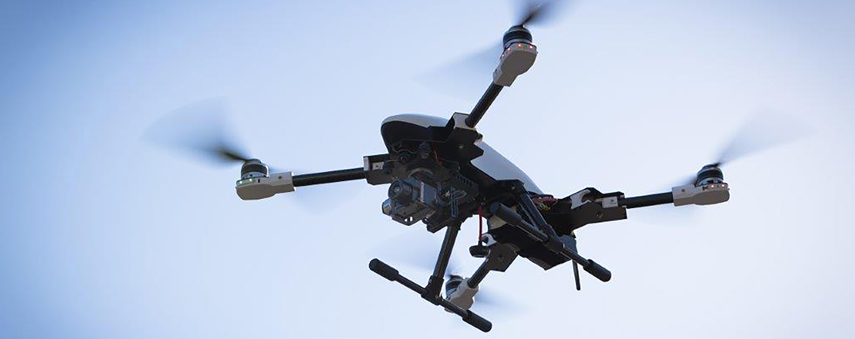3 Extraordinary ways drones could be used in the future

Credit: Space.com
Drones are far more than just a toy to fly around your garden. This technology could be used to uncover our long-buried ancestors and a future away from Earth.
In the tech world, drones are a slow burner. They’ve made their way to consumers and been teased about for a while but drones could about to reshape the world.
In science, remote control is king. From the way we explore vast planets to the way we conduct microsurgery, operating remotely allows us to influence from a distance. This is the genius of the drone. An unmanned aerial vehicle can potentially travel further, travel quicker and operate the tasks that we can’t. It’s much bigger than a toy for our gardens.
There is plenty on the news about how delivery services are going to start implementing drones to drop parcels to you. This is just the tip of the iceberg when it comes to drone capability, however.

Drones can be used by archaeologists to uncover civilisations
There are plenty of ways that technology of the future can shed light on the secrets of the past. One of these ways is through predictive analytics, whereby data mining and machine learning analyse historical facts to make predictions about upcoming events.
Drones can help uncover secrets of what’s below the ground by hovering above it. The biggest clues in historical sites lie in the fact that they retain warmth differently to surrounding soil. It’s possible to create heat maps in an area of rubble that is buried deeper underground.
Drones can capture thermal images. By flying over a drone over a site, archaeologists can take heat-sensitive photos of the ground and determine if there’s anything worth digging before they start.
Operating remotely allows us to influence from a distance.
As the cost of drones decreases, more archaeologists are looking to employ the technology. However, there are legal issues with being able to fly them across land.
Providing that experts can harness the power of drones, it’s possible that they could be revolutionary for archaeology. With reams of photos being collected from historical sites, we can build up three-dimensional images of villages. Software can predict distances with basic calculations. It may even be possible for virtual reality to recreate these sites for us to walk around and discover.
Drones may well become forms of personal transportation
Drones are unmanned but that doesn’t mean that they can’t take passengers.
The definition of drones doesn’t exclude the possibility of them basically becoming air taxis. Drone taxis are already in effect in Dubai, whilst Uber wants to launch a drone service to transport passengers as early as 2023.
In the same way that an autonomous car is able to get from A to B without a driver, drones should be able to incorporate artificial intelligence in order to map a route of the skies and find the quickest way to their destination. So long as they’re flying below 400 feet and avoiding airports, there shouldn’t be too many complications when it comes to the technology. Given that the takeoff and landing are vertical too, there is no need for a runway.

The merging of AI and IoT means that autonomous taxi drones could be with us soon. One of the best things about them is that they don’t rely on fossil fuel either: drones are completely electric and given that they only undertake short flights, there’s no need for refuelling halfway through a journey.
The ability for drones to travel much quicker than cars makes them an attractive option, particularly for city life. With the rise of 5G, it’s likely that efforts to build drone taxis will accelerate.
NASA may use drones to explore other worlds
It’s not just this planet that we can use drone technology on.
One of the biggest reasons that we’ve never sent another man on the moon is due to the dangers associated with such a mission. With technology like drones becoming ever more popular, it’s likely that we will send them into space in order to assess other planets and satellites beyond our own atmosphere.
In May 2018, NASA announced that a rotorcraft helicopter would be used in the Mars 2020 mission. “NASA has a proud history of firsts,” said NASA Administrator Jim Bridenstine at the time. “The idea of a helicopter flying the skies of another planet is thrilling. The Mars Helicopter holds much promise for our future science, discovery, and exploration missions to Mars.”
The rotors on a drone flying over Mars don’t have to work as hard as they do on Earth, given that there is considerably less gravity on the Red Planet. NASA wants to develop wireless networking to reduce the weight of craft. Through wireless communications, satellites could communicate directly with each other in a network. This essentially brings IoT technology to space.
With drones capturing the imagination of so many industries, it seems like only a matter of time before they are implemented in all kinds of sectors. Drones are likely to evolve and with AI becoming a bigger part of the world of IoT, who knows how they could develop?